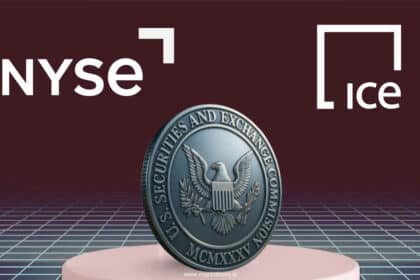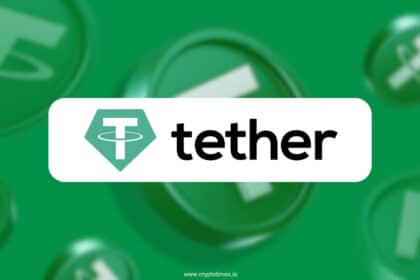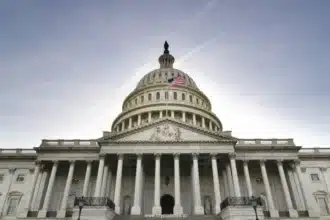From July 14 to 18, 2025, the global crypto community is closely watching Washington, D.C., where the US House of Representatives is holding what it has branded as “Crypto Week.” But this isn’t just a catchy headline, it’s a serious and possibly historic moment for both cryptocurrency markets and mainstream finance.
At the center of this week’s discussions are three major bills that could, if passed, define how digital assets are handled in the United States for years to come. With Bitcoin already soaring past $120,000 earlier this week, largely in anticipation of clearer regulatory frameworks, the stakes couldn’t be higher.
Why now? Over the past several years, the U.S. crypto industry has struggled under regulatory ambiguity. Firms like Coinbase and Binance US have faced lawsuits, penalties, and shifting interpretations of what digital assets are and how they should be classified.
Under the Biden administration, this confusion intensified, driving some crypto businesses overseas.
But under President Donald Trump, who returned to office in January 2025, there’s been a deliberate pivot. Trump has not only expressed open support for crypto innovation, but he also holds a stake in World Liberty Financial, a company behind the USD1 stablecoin.
“House Republicans are taking decisive steps to deliver the full scope of President Trump’s digital assets and cryptocurrency agenda,” House Speaker Mike Johnson (R-La.) said in a statement. “I look forward to President Trump signing them into law.”
The Three Major Bills Shaping Crypto Week
GENIUS Act
First up is the Guiding and Establishing National Innovation for US Stablecoins Act—better known as the GENIUS Act. This bill directly targets stablecoins, a form of cryptocurrency tied to real-world assets like the U.S. dollar.
Under the GENIUS Act, companies would only be allowed to issue stablecoins if they can fully back them with cash or U.S. Treasury securities. They would also have to publish monthly reserve reports and undergo annual audits to prove their solvency.
That might sound technical, but there’s a human impact. Major retailers, such as Walmart and Amazon, are already exploring stablecoins as a way to cut down on transaction fees paid to credit card companies like Visa and Mastercard.
By providing a federal framework, the GENIUS Act could unlock stablecoin use across mainstream shopping and payment platforms.
CLARITY Act
The second bill is the Digital Asset Market Clarity Act, often just called the CLARITY Act. Its primary mission is to settle a long-running turf war between U.S. regulators: the Securities and Exchange Commission (SEC) and the Commodity Futures Trading Commission (CFTC).
Today, many crypto firms live in a state of uncertainty, unsure if they’re breaking securities laws just by operating. The CLARITY Act would hand most regulatory authority to the CFTC, which is widely seen as more crypto-friendly.
Anti-CBDC Surveillance State Act
Finally, there’s the Anti-CBDC Surveillance State Act. This bill isn’t directly about private crypto projects, but instead aims to stop the Federal Reserve from issuing its own government-issued digital currency, known as a central bank digital currency or CBDC.
Supporters argue that a government-issued digital dollar could erode personal privacy, allowing federal agencies to track private transactions.
Why It’s Not Just About Crypto Insiders
Even for those who do not directly invest in cryptocurrencies, the outcome of Crypto Week holds importance. If these bills pass, especially the GENIUS Act, stablecoins could become as common as debit cards or payment apps.
Big banks and fintech companies are already preparing to launch their own coins, which could offer lower fees and faster transactions compared to traditional credit cards.
Retail payment systems would shift. Visa and Mastercard, which collect billions in processing fees, might be forced to lower those fees just to compete. That would ultimately benefit everyday consumers through cheaper goods and services.
There’s also potential for new investment products. Banks could begin offering stablecoin-based savings accounts, crypto-backed loans, or even pension products tied to blockchain assets.
The Criticism: Not Everyone is on Board
Despite bipartisan support in the Senate, where the GENIUS Act passed 68-30, not everyone is thrilled about these developments. Prominent Democrats like Senator Elizabeth Warren argue that opening up stablecoin issuance could invite corruption or allow private interests to sway public financial policy.
Warren said during a Senate hearing that she is concerned that what her Republican colleagues are aiming for is another industry handout. She also urged Congress to bar public officials, including Trump, from issuing, backing, or profiting from crypto tokens.
Another concern is market oversaturation. Critics warn that allowing too many stablecoin issuers could make regulation difficult, increasing the risk of financial instability rather than reducing it.
How Markets Are Reacting
The market doesn’t seem too worried. Bitcoin is up 75% since Trump’s re-election in November 2024. Ethereum and other altcoins have also rallied, contributing to a total crypto market capitalization, now estimated at $3.8 trillion.
Analysts predict that if all three bills pass, Bitcoin could surge beyond $125,000. Stablecoins would see a wave of new entrants, particularly from established banks and financial institutions. Beyond that, tokenized assets like real estate, gold, and treasury bonds could experience accelerated growth as clearer legal definitions reduce perceived risks.
However, if Crypto Week ends without agreement, if votes get delayed or fail altogether, some analysts predict a short-term price dip. But there’s widespread belief that regulatory clarity is inevitable. Even a temporary setback won’t change the long-term trajectory.
What Crypto Week Means for the Global Stage
If the U.S. passes these laws, it sends a clear signal globally—America is ready to lead in crypto innovation. For years, countries like the United Arab Emirates, Singapore, and Switzerland have positioned themselves as crypto hubs while the U.S. lagged behind. Crypto Week could reverse that narrative.
Sahel Ahyaie Assar, an international tax attorney, stated, “As currently drafted, the GENIUS Act’s treatment of decentralized protocols and ‘digital commodity’ classification will be most impactful. If DeFi protocols receive treatment akin to commodities or software platforms—as distinguished from securities issuers—it may change the entire posture of the U.S. crypto enforcement regime.”
Similarly, KPMG’s Anthony Tuths predicts major shifts in how financial institutions operate, “As the financial system adopts blockchain technology, you will see markets trade 24/7 and the back-office related support shrink. The programmable money and intra-day collateral movements will save large financial institutions billions due to greater capital efficiency.”
In Conclusion: Why Everyone Should Pay Attention
Crypto Week isn’t just about traders or tech startups. Its outcomes will affect payment systems, consumer privacy, retail prices, and how money moves in and out of bank accounts.
By July 18, we’ll know whether the U.S. is embracing crypto fully or continuing its cautious dance with digital assets. Either way, the weeks following Crypto Week will be critical for anyone who watches global finance, even if they’ve never bought a single Bitcoin.
Also Read: US Rep. Waters: Crypto Bills May Open Floodgates to Fraud











